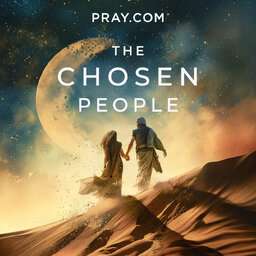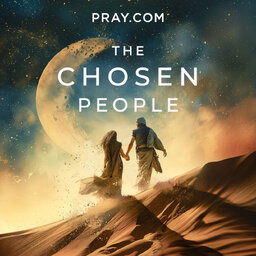Separation: Abram & Lot
# 12 - Separation: Abram & Lot - In this episode of The Chosen People with Yael Eckstein Abram and Lot face a pivotal choice that will define their destinies. Explore how faith and trust in God's promises lead to decisions that shape the future, even when the path is uncertain.
Episode 12 of The Chosen People with Yael Eckstein is inspired by the Book of Genesis.
Sign up for The Chosen People devotionals at https://www.thechosenpeople.com/sign-up
For more information about Yael Eckstein and IFCJ visit https://www.ifcj.org/
Today's opening prayer is inspired by Matthew 6:33, “But seek first the kingdom of God and his righteousness, and all these things will be added to you.”
Listen to some of the greatest Bible stories ever told and make prayer a priority in your life by downloading the Pray.com app.
Show Notes:
(02:24) Intro with Yael Eckstein
(04:02) Separation: Abram & Lot - Cinematic Retelling
(20:48) Reflection with Yael Eckstein
 The Chosen People
The Chosen People


